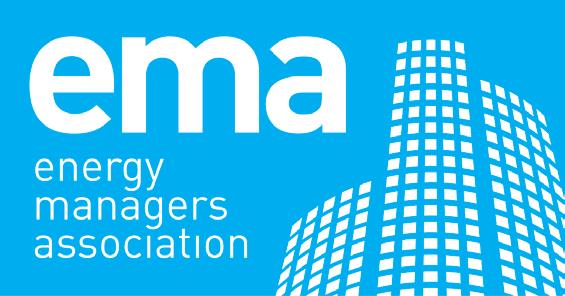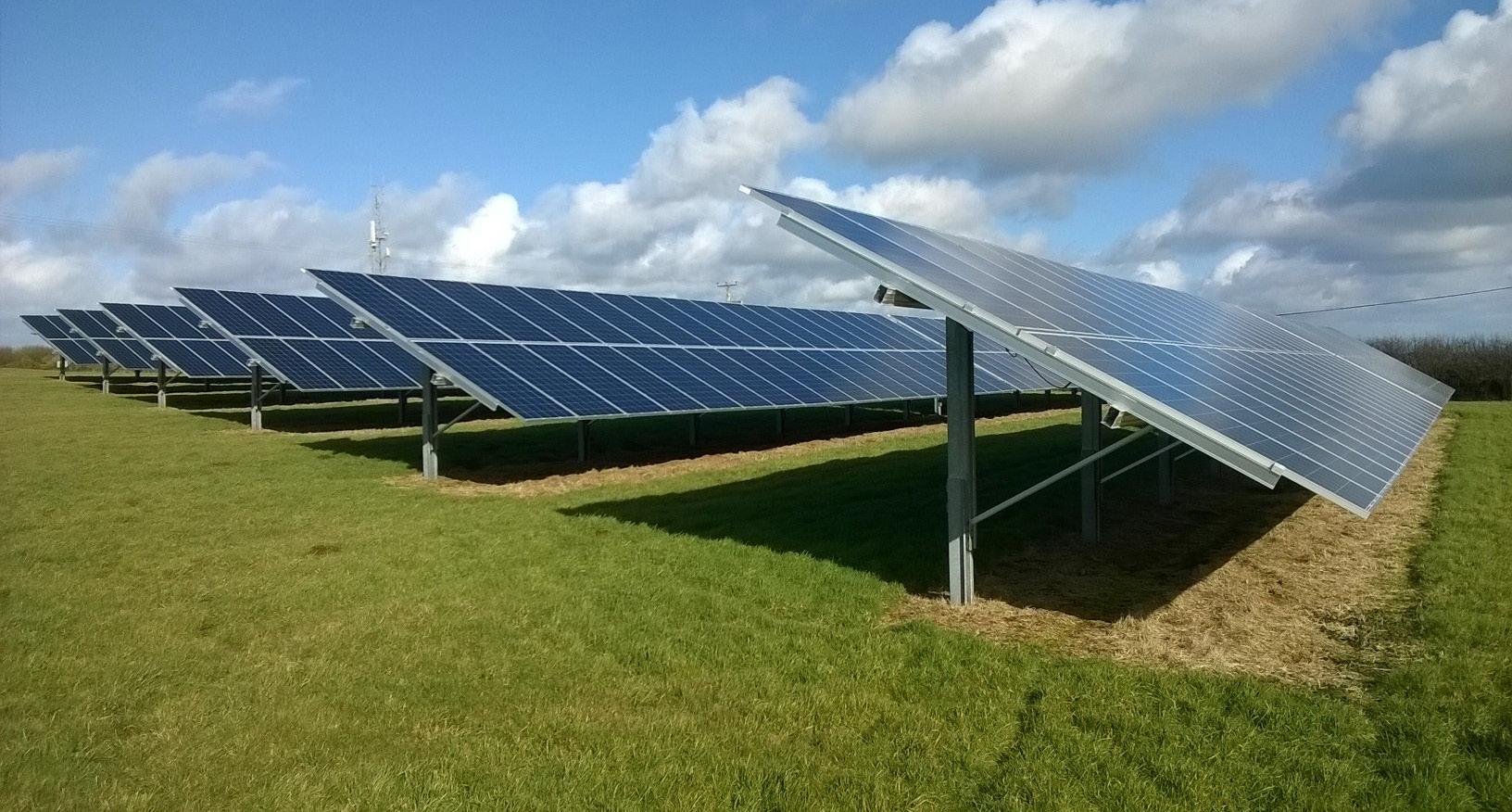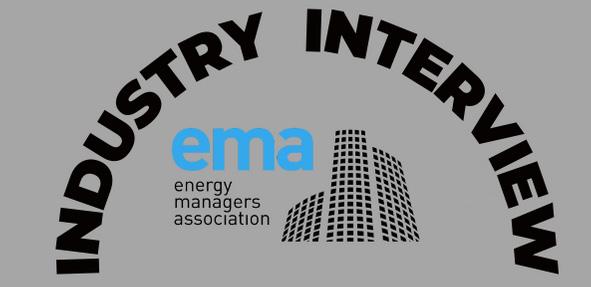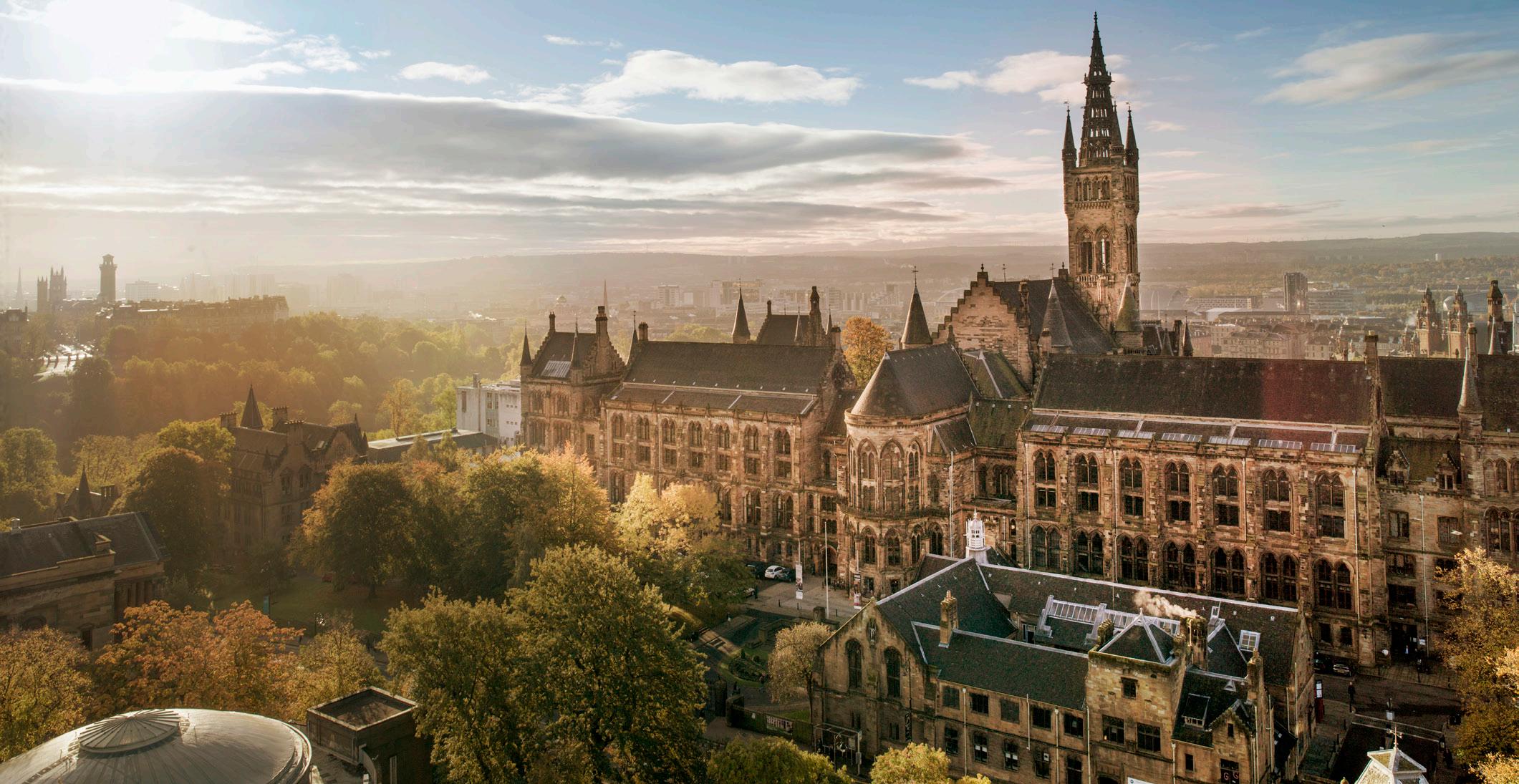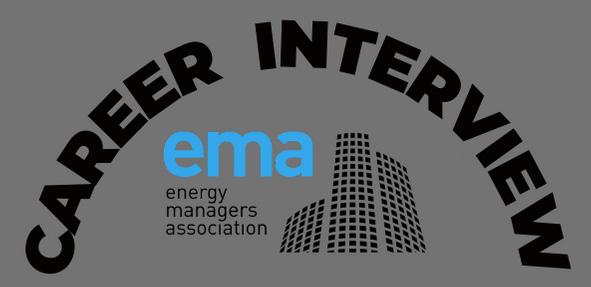
19 minute read
MY ROLE IN SUSTAINABILITY AND ENERGY MANAGEMENT

The EMA defines energy management by 10 core competencies which are required for individuals to effectively manage organisational energy cost, consumption and its monitoring and reporting, as well as energy efficiency requirements. Energy Management can sometimes be viewed as more technical than other similar disciplines. However, is it really? We have asked two sustainability professionals to compare their role to our 10 energy management competencies and here is what they told us.
Advertisement
Mimi Cedrone, Sustainability Manager at University of East London

What does your role at the University of East London entail?
As the Sustainability Manager for the University of East London, my main job is to act as sustainability champion, leading the University’s drive to improve its environmental performance across all its activities and driving cultural and behavioural change throughout the organisation. In general, this involves developing and implementing policies and management systems and co-ordinating environmental sustainability activities across all three of our campuses.
Are you involved in regulatory & legal compliance and carbon management?
I am responsible for creating and keeping an up-to-date Environmental Aspects Register and working with internal legal teams to ensure compliance on all environmental regulatory matters. In addition to being involved in the development of a Carbon Management Plan for the University, I track carbon emissions and make an annual report to the University’s Executive Board, along with other required reporting like the Higher Education Statistics Agency.
Are you involved in energy management strategy and/or plan?
As the Sustainability Manager, I am one of the key players in energy
management strategy for the University. A very important part of my role is keeping track of the University’s electricity and natural gas consumption. Because I have access to this data, it is up to me to highlight any consumptionrelated issues as I notice them, as well as provide an overall picture of energy consumption across all campus buildings. In this way, I can help the Estates & Facilities Team target certain buildings for energy efficiency projects, as well as make broader recommendations for our Net Zero Emissions Plan.
Are you involved in energy procurement?
We are on the CCS Framework, so are not currently doing any energy procurement.
Are you involved in waste management?
Though waste management does not fall under my direct duties, I work closely with my colleagues in the Estates & Facilities Team who manage waste and recycling for the University. Recently, I have been helping to create some new messaging aimed at residential students to help them better understand what can and cannot be disposed of in different waste and recycling bins.
Are you involved in managing transport?
We have a very small fleet of maintenance vehicles at the University, the management of which falls under the Maintenance Team, and two externally contracted intercampus shuttle buses which fall under the management of one of the campus Facility Managers. There hasn’t been much opportunity for me to be involved in the management of transport so far due to the small size of the fleet, but I have spoken with the Maintenance Team in the past about the possibility of electric vehicles in the future should anything need to be replaced.
Are you involved in water management?
I lead on all aspects of water management for the University, including supplier procurement, invoicing, consumption tracking and working with the Maintenance Team and contractors to identify and repair issues. Recently, I have initiated and overseen an upgrade to AMR for all our water meters on campus, along with online consumption tracking and installation of watersaving fixtures. Over the lockdown period, I have also worked with our water retailer and the University’s Maintenance Team to confirm that a meter believed to have been a retail meter was actually a sub-meter, and we had been incorrectly charged for its water consumption since the building was constructed. We would not have had the ability to notice this without the more granular consumption tracking from the AMR and have received a refund of £100,000 for past incorrect charges.
Are you involved in behavioural change and motivation?
Behavioural change and motivation is a key function of the Sustainability Team, which has obviously looked a bit different over the past year! Recently, I have been trying to keep in touch with staff and students through the University’s email newsletters and news section of the University’s website, linking past and current sustainability initiatives to things like World Water Day to encourage people to keep sustainability in mind, even though most are not on campus at the moment. In the past, the Sustainability Team has run initiatives like Green Impact where University staff and students are encouraged to form teams and earn points through different sustainability-related activities such as attending or holding an environmental event on campus, attending a planting session in the community garden or using office materials that would usually be disposed of to create art. This all culminates in a big awards ceremony where everyone’s achievements are celebrated!
Are you involved in IT?
I have not had much opportunity to be involved with IT, apart from providing them with energy consumption data on their server rooms.
Are you involved in technical and operational activities?
While I am not involved in the actual installation and operation of technology and equipment on campus, I am involved in ensuring that our technical and operational activities are being carried out properly, are working correctly and that we have all the information and knowledge we need to make the most of the technology, particularly anything sustainability-related such as our solar PV systems, biomass boiler
and building management system. We are currently in the planning stage to upgrade our outdated BMS and I am leading on the project to ensure that the University gets a system that works for the specific needs of our campus and our BMS users.
Are you involved in energy assessments, measurements and verification?
Has the University set a Net Zero target?
The University of East London has set a Net Zero target as part of its 10year transformation strategy, Vision 2028. An interdisciplinary team has been formed to oversee this huge undertaking, with members from Sustainability, Maintenance, Projects, University Research, the Vice-Chancellors Office and external project delivery partners.
Though we are still in the early stages, we have already seen some success in the development of more detailed project stages, as well as the different ideas and perspectives that come from having a diverse and engaged team.
What are your biggest achievements in your role?
I have had many wonderful experiences and worked on lots of great projects in all of my past roles, but the things that stand out to me as true achievements are when I hear from former student interns who reach out when they get fulltime jobs in sustainability, or when someone I have gone to in the past in order to try and incorporate sustainability into their department comes to ME with an idea or to let me know about something they have already done on their own.
What are your thoughts on the link between sustainability and energy management?
“You cannot manage energy without educating and influencing the behaviour of people, from those who use the buildings to those who operate and maintain the buildings. And you cannot drive sustainable change or effectively communicate on sustainability concepts and goals without In the world of university active energy management. sustainability, the line between sustainability and energy management is often blurred or Author’s Profile: non-existent, and it is certainly Mimi is the Sustainability Manager the case for my job! I would not at the University of East London. be surprised to see more and She is a Certified Energy Auditor more people like myself moving and has led both technical projects into the workforce in the future- and engagement with staff -those with backgrounds in both and students on sustainability the more technical aspects of initiatives. She is currently doing energy management as well as her Masters in Interdisciplinary sustainability behaviour change and Design for the Built Environment at engagement. the University of Cambridge. The simple fact is that the two things are inextricably linked. You cannot manage energy without educating and influencing the behaviour of people, from those who use the buildings to those who operate and maintain the buildings. And you cannot drive sustainable change or effectively communicate on sustainability concepts and goals without active energy management. The ability to navigate both worlds and speak both languages definitely makes it easier to relate to a wider range of people who have the ability to positively contribute to the sustainability goals of an organisation, and to get them excited about how they can become sustainability champions within their own role.
Rebecca Smart, Energy Projects Support Officer at University of the Arts London

What does your role at the University of the Arts entail?
I am the Energy Projects Support Officer for the University of the Arts London and I work in a team of two, alongside my manager Ian Lane
(Associate Director, Sustainable Operations, Estates Department). In my role, I lead on the ISO certifications for Estates – 50001 (Energy Management) and 14001 (Environmental Management). My primary focus is effective energy management (monitoring, targeting and reporting) across six colleges and three halls of residence – 16 buildings in total which operate according to varying complexities of HVAC systems.
The annual energy spend is £4M and I coordinate the procurement of all utilities using a flexible procurement strategy. As part of my role, I ensure legal compliance in these areas and I also forecast and report against the utility budget. Working in a large department that is home to disciplines that range from facilities management to major project development means I have the opportunity to work on a range of projects. For example, I have helped secure a Power Purchase Agreement for the University, and I am a member of the review team for the fit-out of our new £250 million build in Elephant and Castle, London.
Are you involved in regulatory & legal compliance and carbon management?
As part of my role leading on our ISO management systems, I ensure that the University is meeting necessary environmental legal compliance, report any major incidents and communicate any risks and opportunities. I conduct site visits twice per year to all of our sites to ensure the University is not only meeting the standards it sets for itself through ISO, but all legal compliance. This includes ensuring waste transfer notes, consignment notes for hazardous waste and F-gas certificates are available and correct. I also ensure Display Energy Certificates (DECs) are on display and I lead on the renewal of the DECs each year. With the new Streamlined Energy and Carbon Reporting legislation coming into force, I put together the necessary data and statement to comply with this legislation for the first time last year. The EMA was very helpful for this task as I attended a useful presentation at EMEX in November 2019 which explained the necessary requirements.
Are you involved in energy management strategy and/or plan?
I am a key stakeholder regarding the University’s Energy Policy. The policy commits the university to reduce energy consumption and to reduce carbon emissions by 43% by July 2020, which was achieved. There is a focus on monitoring and targeting our energy consumption, which is particularly important as we aim to ensure any savings made are not lost and we can maximise savings from work such as adjusting BMS schedules. Part of our policy commits the University to refurbish

and design sustainably – for example, the new construction of the London College of Fashion will be rated as BREEAM Outstanding. The new energy strategy which will outline how the University can achieve carbon positive status by 2030 is in draft.
Are you involved in energy procurement?
In 2019, I worked on a project to sign the University up to a Power Purchase Agreement (PPA) so that a portion of our electricity came directly from a wind farm. This was a really interesting project to work on as, at first, it was all new to me and for this project I presented to senior management on what a PPA is, the benefits and potential risks. I was also part of the tender process to find a suitable provider. The University joined with 20 other universities as part of the deal to buy a portion of its electricity directly from wind farms and this was a first for higher education and public sector organisations.
In terms of regular energy procurement, the University procures electricity and gas through a Consortium who act on behalf of the University and who I have a close relationship with. I have been involved in the tender process for the Consortium when it was selecting new electricity and gas suppliers, by reading and scoring nine different bids on the customer service side. This was a really good experience to understand further the tender process for utilities and to help the University and other members of the Consortium to select the best possible suppliers. Each quarter, Risk Management Meetings are held with the Consortium which are an opportunity for me and the University to assess the procurement strategy and examine any changes to strategy or utility prices. Ahead of the meeting, I will scrutinise data provided by the Consortium and raise any queries.
Are you involved in waste management?
Waste management is the biggest part of our ISO 14001 certification (alongside energy, which is managed through ISO 50001). I have learnt a lot from setting up this system and I have helped to pass on key knowledge to our Facility Managers – we have held training sessions and I carry out regular site visits. These site visits fall into our ISO 14001 system and I will look to see if WEEE and other hazardous waste is being stored correctly, general and skip waste is not contaminated and that waste transfer notes and consignment notes are available and signed correctly.
As a result of this we have had zero non-conformities in our ISO 14001 system. I have also visited a waste transfer station which was an eyeopening experience – seeing the in-depth processes it takes to sort our waste, including hand sorting, reiterated the importance of segregating waste correctly at the start of its journey.
Are you involved in managing transport?
The University does not own or lease any vehicles; however, I am involved with transport management in terms of Scope 3 emissions. I have written a transport survey, managed a team of students to carry out a month-long distribution of the survey and I analysed the data. This survey was useful for reporting our Scope 3 emissions from students and staff commuting and to understand where our emissions are being produced and could be reduced. In the past, I have worked on the ‘Cycle to Work Day’ for the University and the University has a cycle to work scheme.
We are also working on implementing consolidated delivery for our sites. This will significantly reduce the number of deliveries and reduce our Scope 3 emissions from this source
Are you involved in water management?
Water management also forms part of our ISO 14001 certification and through this, I monitor and report our water use. This is something I have developed so that each site has a monthly target and consumption is reported against this. I have undertaken water surveys alongside our supplier to find areas where consumption can be reduced and planned on doing more of these until Covid-19 made visiting our sites more difficult! We have installed a handful of AMRs on to our meters and this is proving helpful to ensure accurate reporting of our consumption as well as accurate billing. As part of Green Week 2019, I worked with an alumnus who created an interactive sculpture which demonstrated every step water went through to reach the University’s taps. This sculpture was moved around a number of our sites for students and staff to see.
Are you involved in behavioural change and motivation?
As part of my role, I have given presentations to Estates staff and Facility Managers to teach about our ISO systems, waste management and our energy consumption with a view to engaging staff with these and encouraging sustainable management. With the help of the Estates Communications Executive the wider University audience has been reached through the promotion of activities and events that I have helped to put together. This includes ‘Green Week’ activities such as the ‘Useful or Beautiful’ competition where students and staff are encouraged to use waste materials to make something useful or beautiful, or a sculpture raising awareness of water use at the University.
The University has recently launched its ‘Carbon Literacy Training’ which was put together by my manager, but I provided all the technical data for and which all staff are encouraged to take. The training covers climate emergency, carbon positive, waste and circularity, buying with a conscious and sustainable learning, teaching and research.
Are you involved in technical and operational activities?
Energy consumption in our buildings is large part of my role, therefore I work closely with Facility Managers and building maintenance staff regarding technical and operational activities that affect energy use. This includes looking at heating and air conditioning schedules and reviewing whether buildings are in line with our heating and cooling policy.
Recently, I have reviewed BMS schedules at two of our largest sites to ensure they are running at an optimal level – this is important in our newer buildings where there are fewer opportunities to install more efficient equipment as they have already been constructed to run more efficiently.
BMS optimisation has been important during the opening and closure of our buildings through Covid-19 in order to find a balance between running our buildings in a safe and healthy manner but also so that little energy is wasted.
Currently, I am working with our maintenance contractor to review the lighting schedule in our largest building to look for any energy saving opportunities.
I am currently reviewing the energy and sustainability strategy for the fit-out of our new construction of the London College of Communication. This is an £250 million project and is aiming for BREEAM Excellent. The building will use mixed-mode ventilation which is particularly notable as it is located in central London (Elephant & Castle) and will need to balance providing fresh clean air from natural ventilation while being located next to a road and railway.
Are you involved in IT? Are you involved in energy assessments, measurements and verification?
I monitor, target and report on energy use, on a monthly basis, across our six colleges and the three halls of residence that fall under our ISO 50001 scope. Each building has a monthly consumption target against which actual consumption is reported.
I investigate any high consumption or anomalies by examining halfhourly data and consumption patterns and follow up with Facility Managers. Through this I have been able to spot high consumption due to increased opening hours or found opportunities to reduce consumption, for example identifying equipment that was turning on earlier than expected. I visit the sites regularly to carry out surveys to look for energy saving opportunities and to meet with the Facility Managers.
On an annual basis, I compile our consumption data for various compliance obligations such as Streamlined Energy and Carbon Reporting, Display Energy Certificates and Estates Management Return.
Has your organisation set a Net Zero target?
The next energy management strategy is in draft, as the University achieved its target of a 43% reduction in carbon emissions by July 2020. Our next strategy will focus on how the university can achieve net carbon positive status by 2030, which will be presented to our Executive Board by July 2021. I will research net zero and study different organisation’s approaches. I recently attended the EMA’s webinar ‘Net Zero: what is it, how do you measure and achieve it?’ which was very useful.
What are your biggest achievements in your role?
Working in a small team means I have had the opportunity to work on a wide range of projects. A couple of those that were particularly interesting and that I am proud of is my work in signing the University up to a Power Purchase Agreement (PPA) and leading a team of seven student interns. The PPA involved researching different types of PPA, considering the risks and benefits to the University – particularly as it is long-term contract and considering what proportion of our electricity should be sourced from the PPA. As a result, the University joined with 20 other universities as part of the deal and now sources 14% of its electricity directly from wind farms. Leading seven student interns who each worked on their own project was a good experience for me as my only previous leadership and team management experience was captaining my hockey team! This was a great learning opportunity, and I am pleased to have helped students with work experience. For example, one intern said the internship “really boosted my confidence and being able to be involved in this type of work as a first-year undergraduate was so inspiring.”
Each year the University is audited for ISO 50001 and ISO 14001 and it is always pleasing to be given a seal of approval for the work done for these. The work I did regarding waste management in setting up 14001 and continue to do is a particular achievement for me as waste management is now a topic that the Estates Dept. is a lot more knowledgeable and conscious about.
The University has been very good in supporting me with my professional development as I have completed the Energy Institute Level 2 Energy Management training course which was a 200 hour course for which I completed a range of modules including lighting, heating & ventilation and BMS and I undertook a work-based project.
What are your thoughts on the link between sustainability and energy management?
At the moment, I think sustainability and energy management are quite closely linked, with sustainability focusing on the ‘environmental pillar’ of sustainability and covering subjects such as waste and water management, often with organisations focusing on their direct impact. As people become more aware of sustainability and scrutinise organisations more about their impact, I think sustainability will expand to focus more on indirect impacts of organisations such as their supply chains and investments.
Author’s Profile:
Rebecca has always had a keen interest in the environment and nature and completed an MSc in Climate Change in 2016. As part of this, she undertook an internship with the University of the Arts London before joining them full time at the end of 2016.


